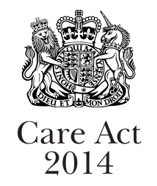The health and social care sector is a permanent fixture of the nation’s news cycle and, it seems, is the permanent subject of speculative reform proposals. While there are many reasons for this, principal among them is the external pressure faced by the industry itself. The UK’s population is ageing to an unprecedented degree: the ONS projects that there will be an additional 5.8 million people aged 65 by 2041. More people have long-term conditions than ever before. One in three patients admitted to hospital presents with five or more health conditions, up from one in ten a decade ago. Rates of diabetes, obesity, mental ill-health, and dementia have continued to increase. As such, it is more important than ever to ensure commissioners and providers alike get care provision right. These increasing needs, the changing requirements of commissioners, and the accelerated push for reform require expert knowledge and experience to ensure the health and social care tenders respond to contemporary issues.
Health and Social Care Tenders
We place bidders at the cutting edge of contemporary thinking around health and social care, adding material value to bid submissions by integrating innovative practices into their tender responses. Our bid writers have produced winning tenders for social care services for NHS tenders, all 32 London borough councils, all 27 county councils, and almost every borough or city council in the UK. We have helped newly registered providers access frameworks for the first time and have supported some of the largest care companies and charities in the UK to improve their success rates and develop their services through training, bid writing, and bid management.
Recent examples of the range and level of services we offer include:
- Support for a large regional care provider to geographically expand into three new areas through the delivery of winning tender submissions. As a result, they opened three new offices, supporting over 400 service users
- On behalf of a consortium of charities and private sector care providers in Scotland, we delivered a bid to secure every lot of an integrated health and social care contract for a local health and social care partnership – supporting the consortium to achieve city-wide sole-supplier status
- The submission of a range of successful bids to grant-making organisations on behalf of a small charity to support their transition to online delivery of care and support over the most critical period of the COVID-19 pandemic. We were successful in 100% of the bids we submitted, supporting the charity to increase their client base and central office resource.
Through our experience and research, we have developed in-depth knowledge of the full range of care and support models offered by care providers throughout the UK, to both children and adults. This includes:
- Domiciliary care, supporting service users of all ages to grow and keep their independence and continue living in their own homes
- Residential and nursing care
- Extra care, combining the benefits of a round-the-clock care worker presence with the autonomy that comes with having your own front door
- Supported living, mostly for adults with learning disabilities
- Supported accommodation for people with housing-related needs, including young adults
- Diverse services that contribute to people’s overall health and wellbeing, including drug and alcohol, mental health, smoking cessation, and weight management services.







 The principal piece of legislation governing health and social care services in England is the
The principal piece of legislation governing health and social care services in England is the